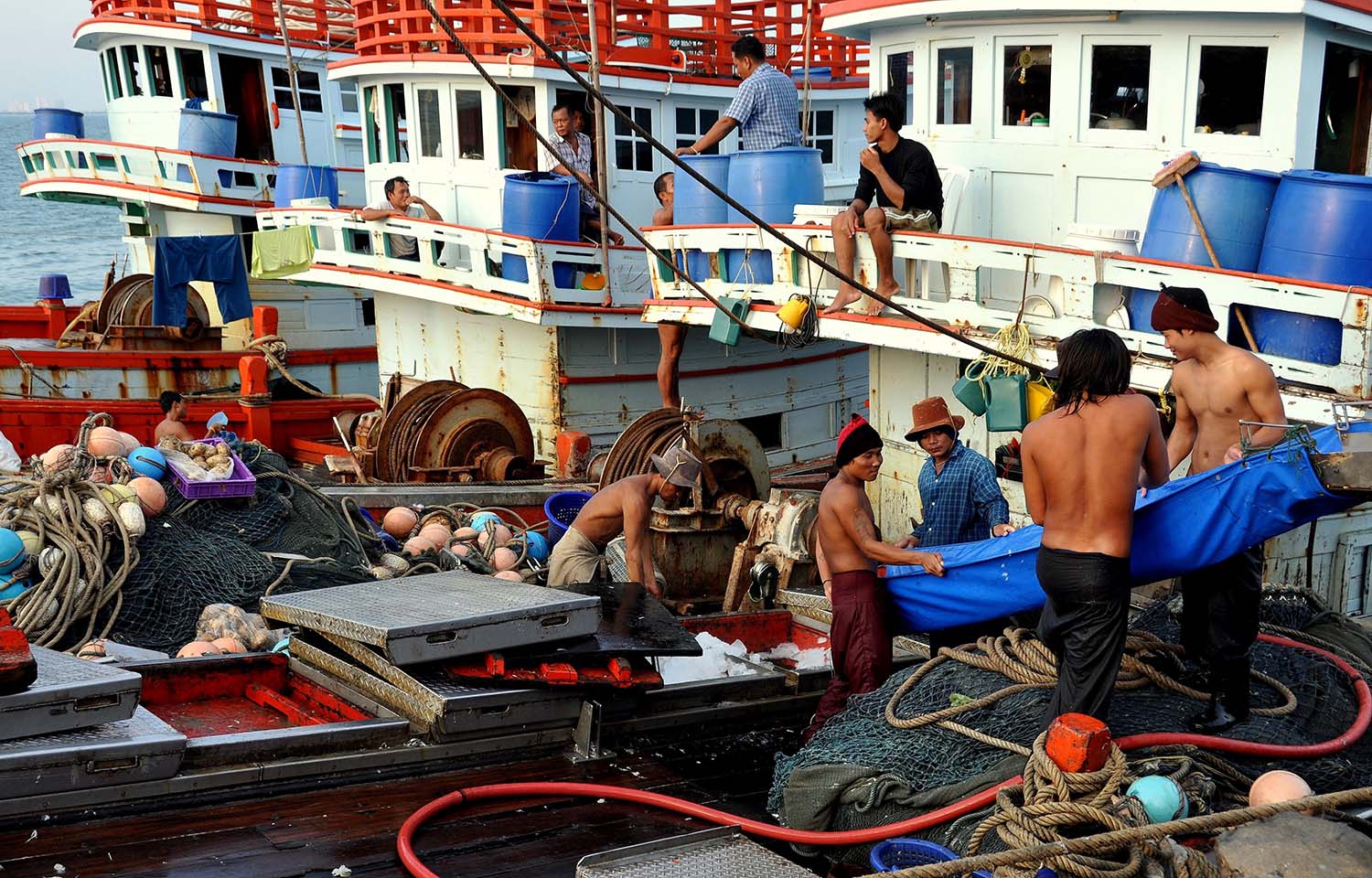The Environmental Justice Foundation (EJF) is calling for the Thai government to curtail the practice of pair trawling, which it called envrionmentally destructive.
EJF's recent “Scourge of the Seas” report attributed much of the country’s catch declines to trawling vessels, especially those using pair trawling – a type of bottom trawling involving two vessels pulling a net that can stretch as much as a kilometer wide. According to the report, a study of the country’s past catch volumes and declining catch per unit effort (CPUE) are signs that Thailand’s fisheries are declining, which EJF blamed on pair trawling and other bottom trawlers.
“Thailand’s fish populations are being devastated by a small, unregulated portion of its commercial fleet. Destructive and uncontrolled pair trawling is wiping out the ocean ecosystems that support livelihoods and food security across Thailand, in a short-term grab for profit at far greater long-term costs for people and the environment,” EJF CEO and Co-Founder Steve Trent said.
EJF said trawlers make up just 5 percent of the fishing fleet but accounted for 40 percent of landings by volume in 2021. A portion of their catch is so-called “trash fish” that has been bruised or crushed through the trawling action, with little commercial value, EJF said. Much of is composed up of the juveniles of valuable species that would have been worth more if not caught too young.
Analysis of the catch by Thailand’s Department of Fisheries 20 years ago and the Southeast Asian Fisheries Development Center in 2013 and 2014 found 64 to 78 percent of the trash fish caught were juveniles of economically valuable species. A 2017 follow-up study found the total could be as high as 81 percent.
“Pair trawlers catching vast quantities of juvenile fish threaten to cause an inescapable downward spiral, undermining future healthy fisheries for trash fish today,” Trent said.
Thailand instituted widespread fisheries reform in 2015, after becoming known as a “place where illegal, unreported, and unregulated (IUU) fishing was rampant” according to The Pew Charitable Trusts. The problem brought about heavy criticism from the European Commission, which issued a yellow card caution in April 2015 that called for Thailand’s government to take action or risk being barred from exporting seafood to the European Union.
The European Commission lifted the yellow card in 2019, signaling it was satisfied with Thailand’s fisheries reforms that were designed to prevent IUU.
But Thailand's reforms came under heavy criticism from the nation's fishing industry, which began lobbying the government to relax its reforms soon after the yellow card was lifted.
International seafood buyers called on the country to stand strong on its reforms despite fishing industry protests. However after national elections in 2023, the Thai government began signaling a move toward deregulating the industry. Seafood-focused NGOs have warned the lack of oversight that previously plagued the sector may return.
According to the EJF report, even with the 2015 reforms, Thailand’s fisheries are ...








